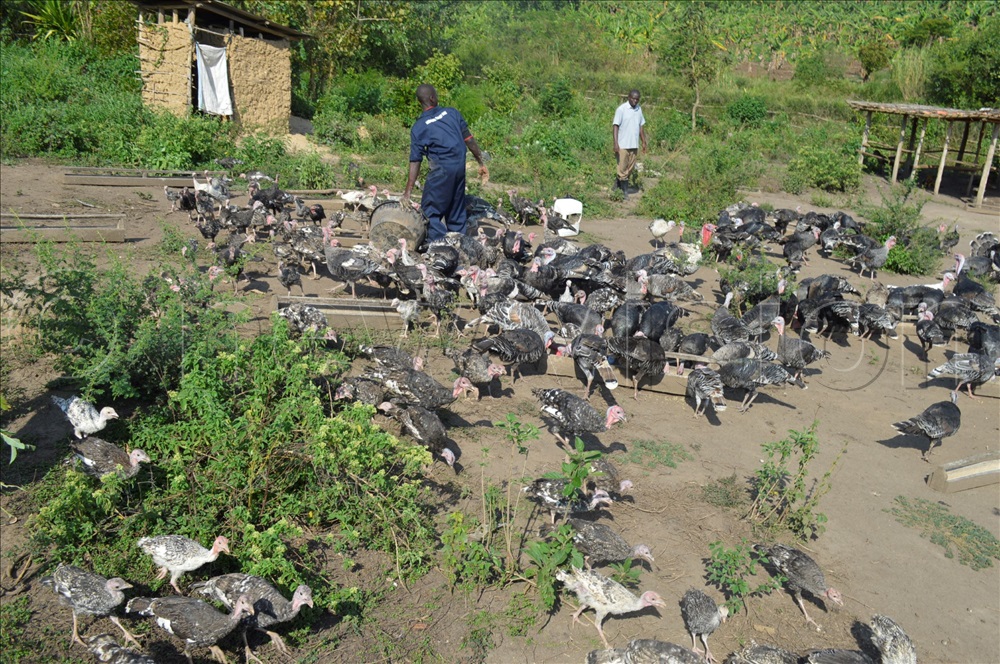By Umar Nsubuga
Caring for young turkeys (known as poults) requires special attention, particularly in the first few weeks of life, as they are delicate and prone to health issues.
Wilson Nkurunziza, who has reared turkeys for over 15 years says poults need warmth, especially in their first few weeks.
He says young turkeys are very sensitive to cold, and drafts can lead to chilling and health problems. Bedding materials such as wood shavings, straws, or rice husks work well.
He says ensure the bedding is dry and absorbent to prevent wetness, which can lead to disease and foot problems.
“Replace the bedding frequently to prevent the buildup of moisture, droppings, and harmful bacteria,” he adds.

“Ensure proper ventilation. While keeping poults warm, make sure the brooding area is well-ventilated. Good ventilation reduces humidity, removes ammonia fumes, and keeps air quality fresh, reducing the risk of respiratory infections,” he explains.
Clean water
According to Nkurunziza, young turkeys need constant access to clean, fresh water. The waterers should be shallow enough to prevent drowning, and they should be placed in easily accessible areas. Avoid placing waterers too close to the heat source, as warm water can discourage drinking.
For the first few days, he says consider adding vitamins and electrolytes to the water to boost the poults’ immunity and energy levels.
Nkurunziza also says turkeys grow rapidly and require high-protein feed to support their growth. Start them on a high-quality turkey starter feed with a protein content of 28-30% for the first six weeks. After six weeks, transition them to a grower feed with a slightly lower protein content (18-20%).
“Feed should be available at all times, especially during the first few weeks. Ensure feeders are clean and large enough to prevent overcrowding,” he explains.
Prevent pecking
Overcrowding, too much heat, or a lack of feed or water can cause poults to become stressed and start pecking each other. Ensure they have ample space, adequate food, and water, and that their brooding area is neither too hot nor too cold, he explains.
“Consult a veterinarian about recommended vaccinations or medications, especially if you are in an area where diseases like Blackhead disease or Coccidiosis are common,” he says.
Signs of illness
If poults appear ill or have diarrhea, Nkurunziza advises farmers to isolate them immediately to prevent the spread of disease.
Also, maintain good biosecurity by limiting visitors and disinfecting footwear and equipment regularly.
Once the poults are fully feathered (around 6-8 weeks), they can be introduced to the outdoors. However, he says to do so gradually, starting with short supervised periods in a secure outdoor pen. Make sure the weather is mild, as young turkeys can still be sensitive to cold or heat.
Ensure proper growth and development
Weigh your poults regularly to monitor their growth and ensure they are developing at a healthy rate. He says healthy poults should show consistent weight gain each week.
He says it’s important to observe their feather growth. Healthy poults will start feathering out properly by the time they are ready to be weaned off the heat source.





